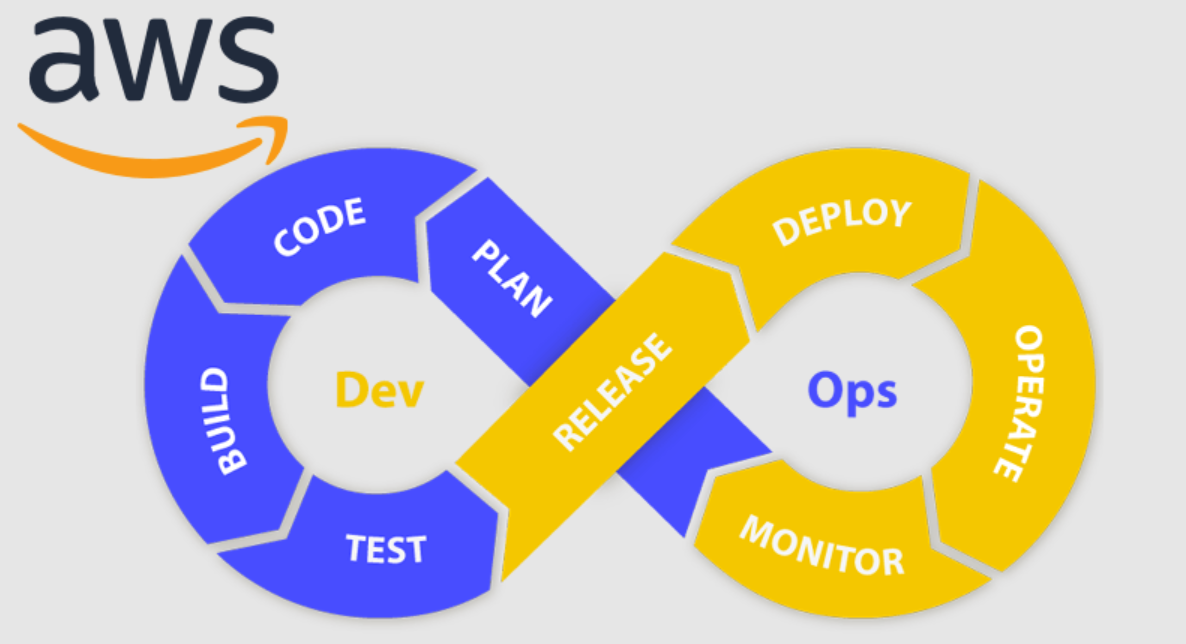AWS DevOps Tutorial - A Complete Guide
In the rapidly advancing field of technology, the synergy between cloud computing and DevOps practices has become increasingly vital. As organizations strive to deliver software faster and more reliably, integrating Amazon Web Services (AWS) with DevOps principles has emerged as a powerful solution. This article serves as a comprehensive guide to understanding AWS DevOps course, exploring effective ways to learn DevOps, and highlighting the advantages of online DevOps training and certifications.
What is AWS DevOps?
AWS DevOps is a fusion of Amazon Web Services (AWS) and DevOps methodologies aimed at optimizing the software development lifecycle. AWS, a leader in cloud computing, provides a suite of tools and services that support various aspects of DevOps. These services are designed to enhance the efficiency and effectiveness of development and operations teams by automating and streamlining processes such as code integration, testing, deployment, and monitoring.

How to Learn DevOps? A Complete Guide
Understand the Basics of DevOps
Before diving into AWS-specific practices, it's essential to understand the core principles of DevOps. DevOps is a cultural and technical approach that aims to break down the silos between development and operations teams. Key concepts include:
Continuous Integration (CI): The practice of automatically integrating code changes into a shared repository frequently.
Continuous Deployment (CD): Automating the deployment of code changes to production environments.
Infrastructure as Code (IaC): Managing and provisioning infrastructure using code and automation rather than manual processes.
Monitoring and Logging: Continuously monitoring applications and infrastructure to detect and address issues promptly.
A solid grasp of these fundamentals will provide a strong foundation for applying DevOps practices within AWS.
Get Familiar with AWS
To effectively use AWS DevOps, you need a good understanding of AWS services. Start with foundational services like:
Amazon EC2 (Elastic Compute Cloud): Provides resizable compute capacity in the cloud.
Amazon S3 (Simple Storage Service): Offers scalable storage for data and applications.
Amazon RDS (Relational Database Service): Manages relational databases with ease.
Once comfortable with these basics, delve into AWS tools tailored for DevOps, such as:
AWS CodePipeline: Models and automates your software release process.
AWS CodeBuild: Compiles source code and runs tests to produce software packages.
AWS CodeDeploy: Automates application deployments to various compute services.
Understanding these tools is crucial for implementing effective DevOps practices on AWS.
Learn Key DevOps Tools and Practices
AWS provides a suite of tools designed to support DevOps practices. Familiarize yourself with:
AWS CodePipeline: This service allows you to visualize and automate your CI/CD pipeline, integrating with various source code repositories and deployment environments.
AWS CodeBuild: Automates the build process, running tests and generating deployable artifacts.
AWS CodeDeploy: Facilitates automated deployment of applications to multiple targets, such as EC2 instances and Lambda functions.
Mastering these tools will enable you to build and manage robust CI/CD pipelines, automate testing and deployment, and monitor application performance.
Enroll in Online DevOps Training
Online DevOps training provides flexibility and convenience, allowing you to learn at your own pace and from anywhere. Look for courses that offer practical, hands-on experience with AWS tools and DevOps practices. These courses often include interactive labs, real-world scenarios, and access to industry experts. Benefits of online training include:
Flexibility: Learn on your own schedule and balance with other commitments.
Cost-Effectiveness: Online courses are often more affordable than traditional classroom training.
Comprehensive Resources: Access to a wide range of learning materials, including video tutorials, quizzes, and community support.
Gain Practical Experience
Theoretical knowledge is essential, but practical experience is key to mastering AWS DevOps. Start by working on small projects or contributing to open-source initiatives. Build your own CI/CD pipelines, automate deployments, and implement monitoring solutions. Hands-on practice will reinforce your learning and help you apply DevOps principles effectively.
Obtain a DevOps Certificate
A DevOps certificate can enhance your career prospects and validate your expertise. AWS offers certifications like the AWS Certified DevOps Engineer – Professional, which demonstrates your ability to design, deploy, and manage applications using AWS services. This certification is recognized industry-wide and can set you apart in the job market.
Final Words
AWS DevOps represents a powerful combination of AWS's cloud capabilities and DevOps practices, aimed at revolutionizing software development and operations. Online DevOps training offers a flexible and cost-effective way to acquire the necessary skills, while obtaining a DevOps certificate can provide valuable validation of your expertise.
By mastering AWS DevOps, you position yourself at the forefront of modern software development practices, equipped to drive innovation and efficiency in your organization. Embrace the tools, practices, and learning opportunities available, and you'll be well on your way to achieving excellence in the dynamic world of cloud computing and DevOps.